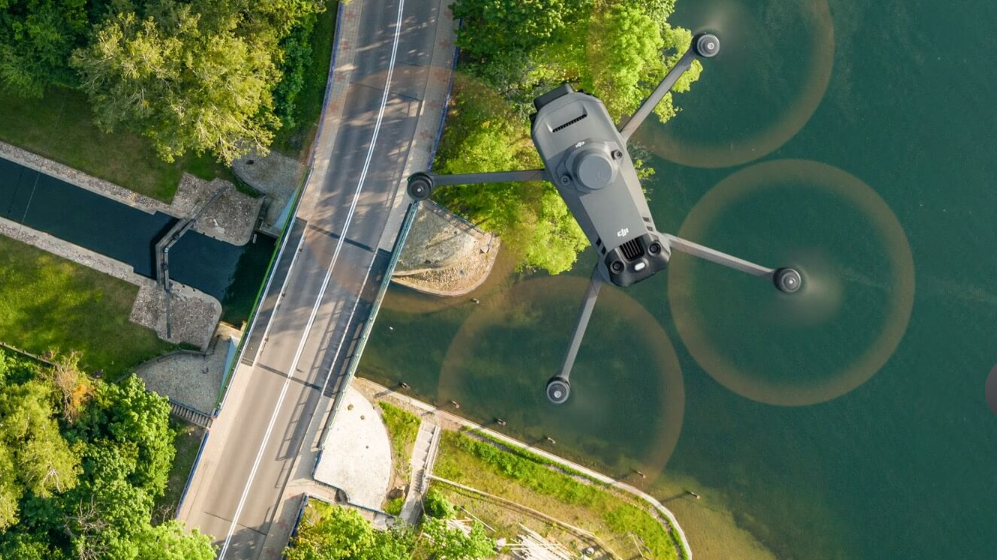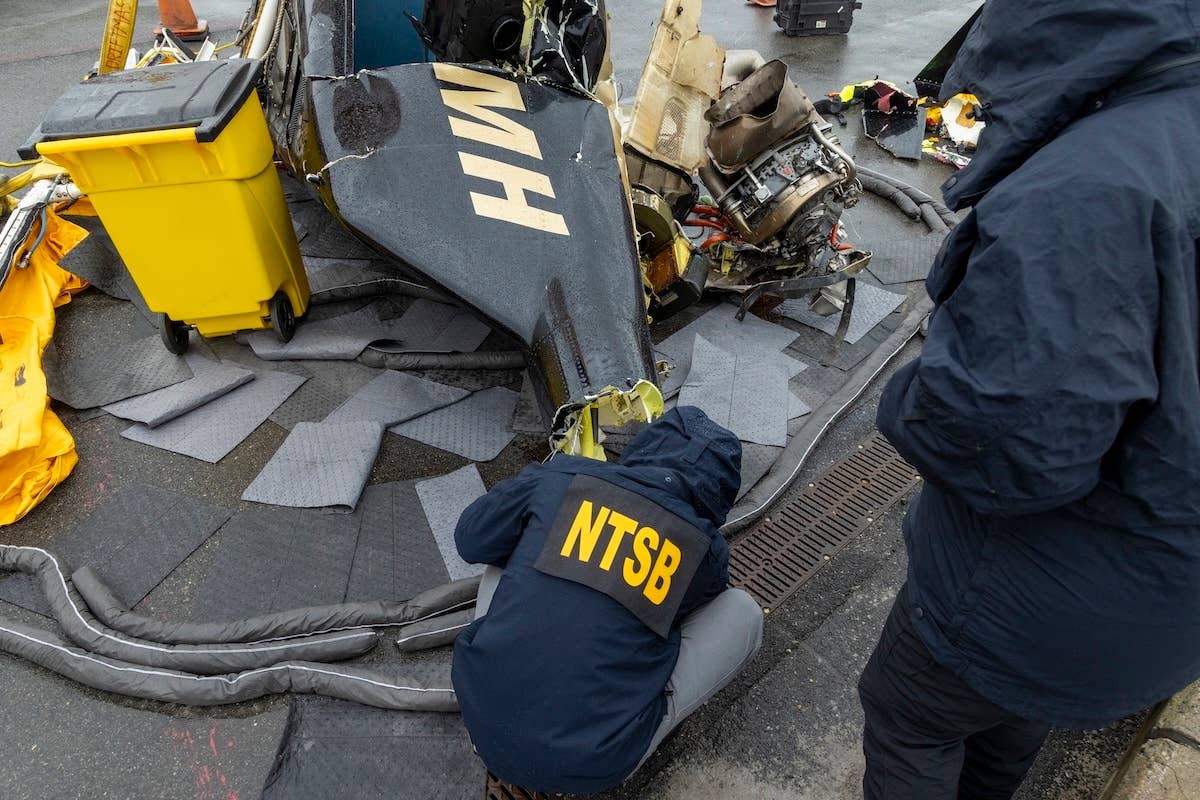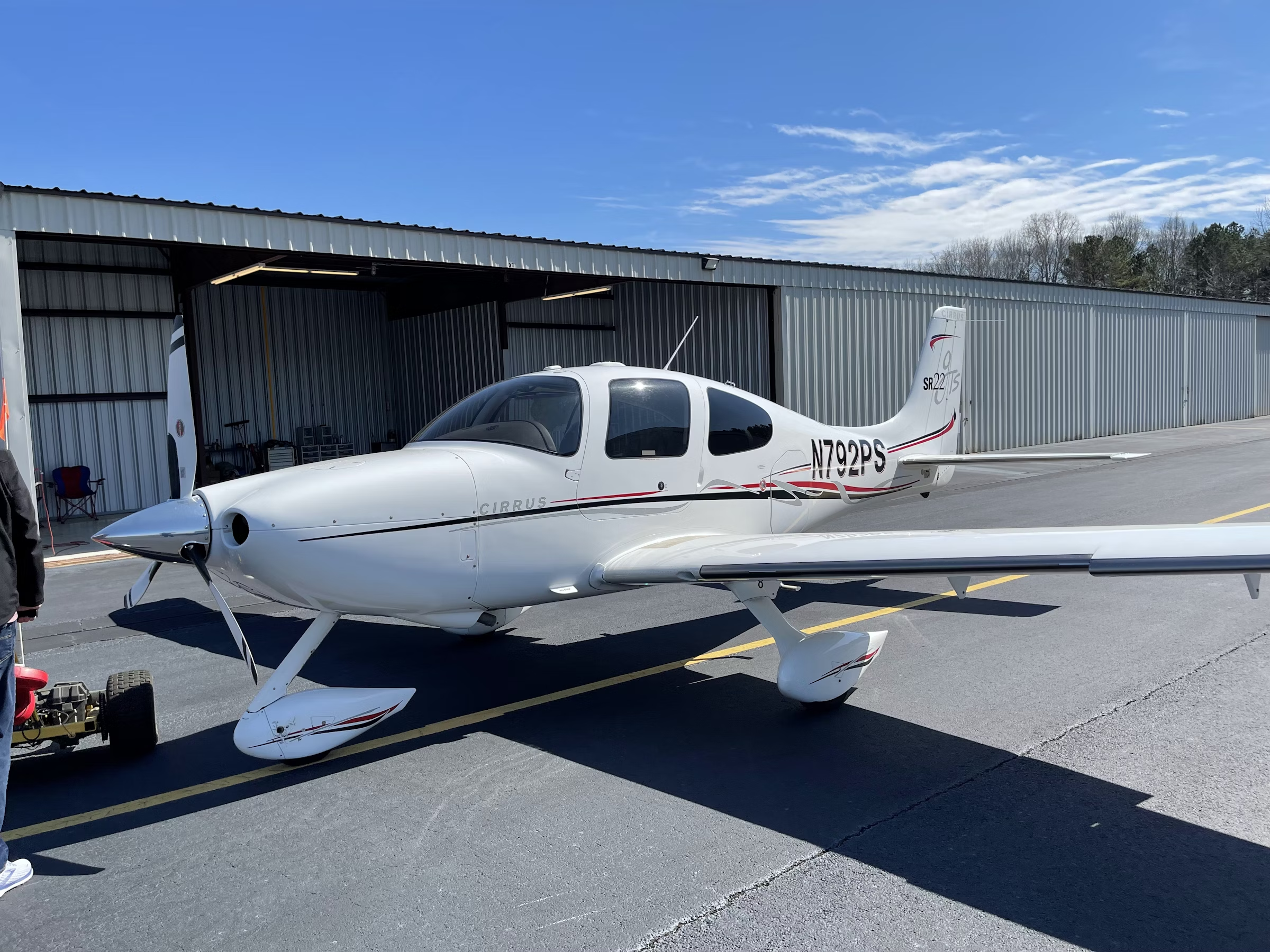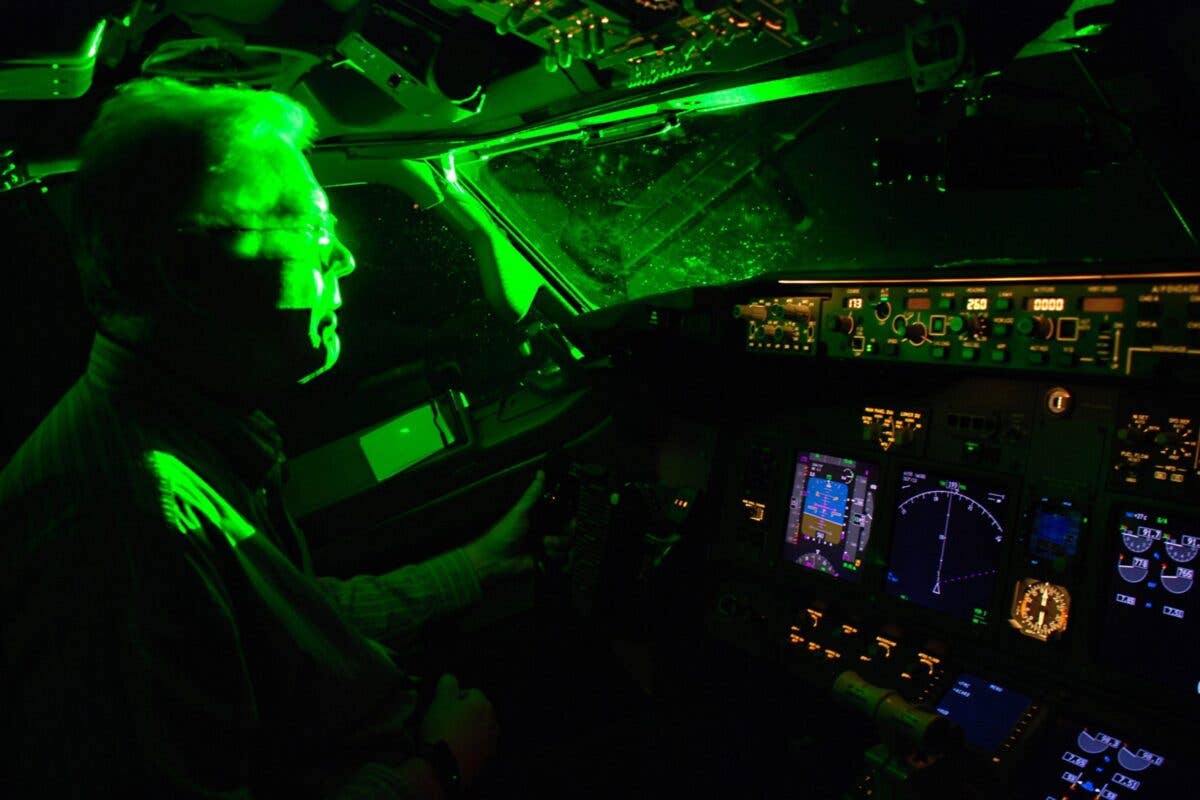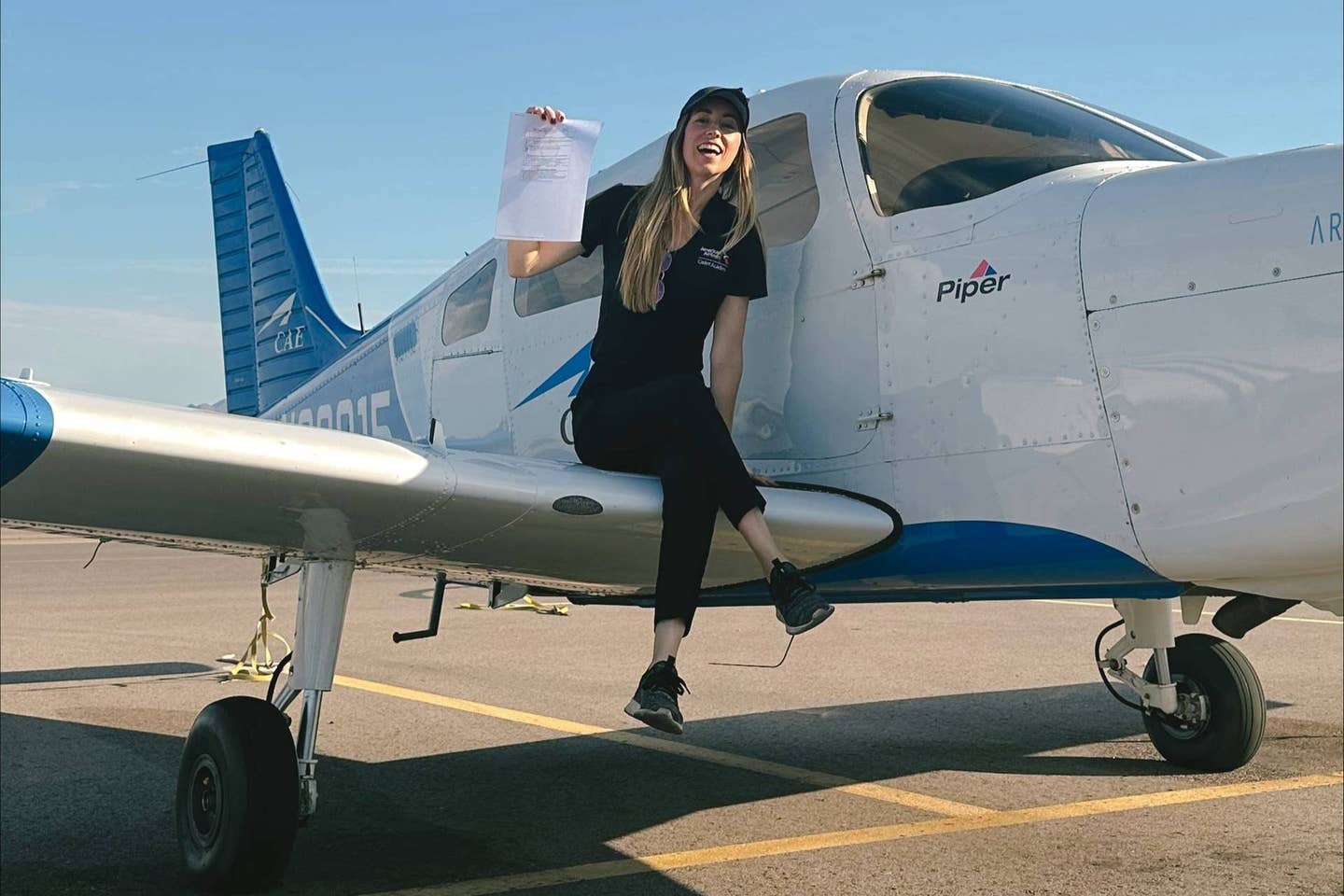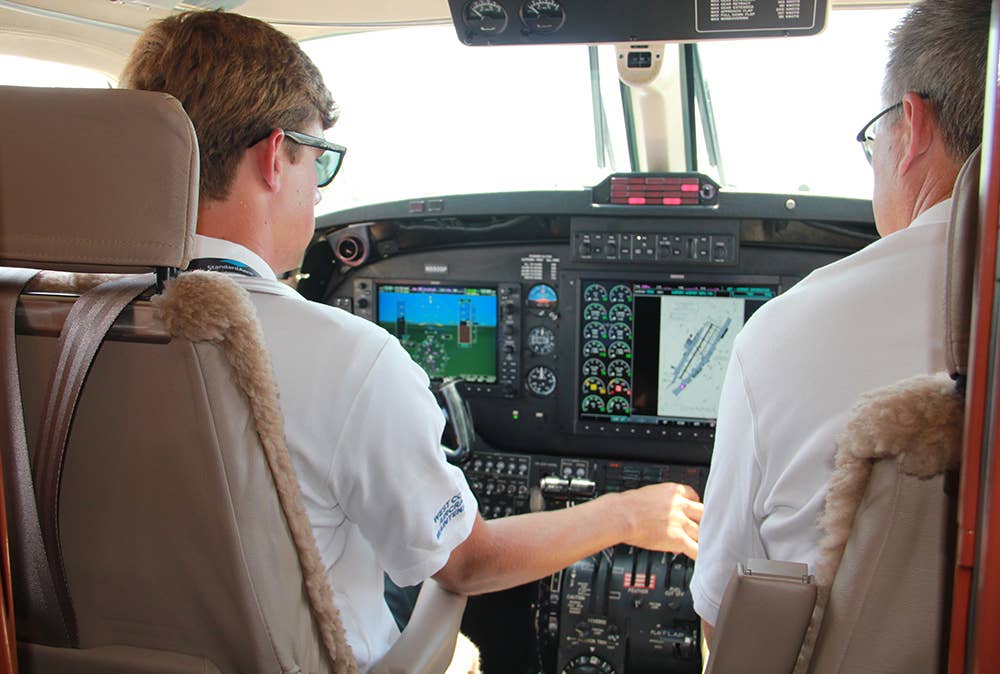Skydivers Wary of Potential New Regs in FAA Reauthorization
The United States Parachute Association is offering a safety management system as an alternative to a proposal it says could put some small operators out of business.
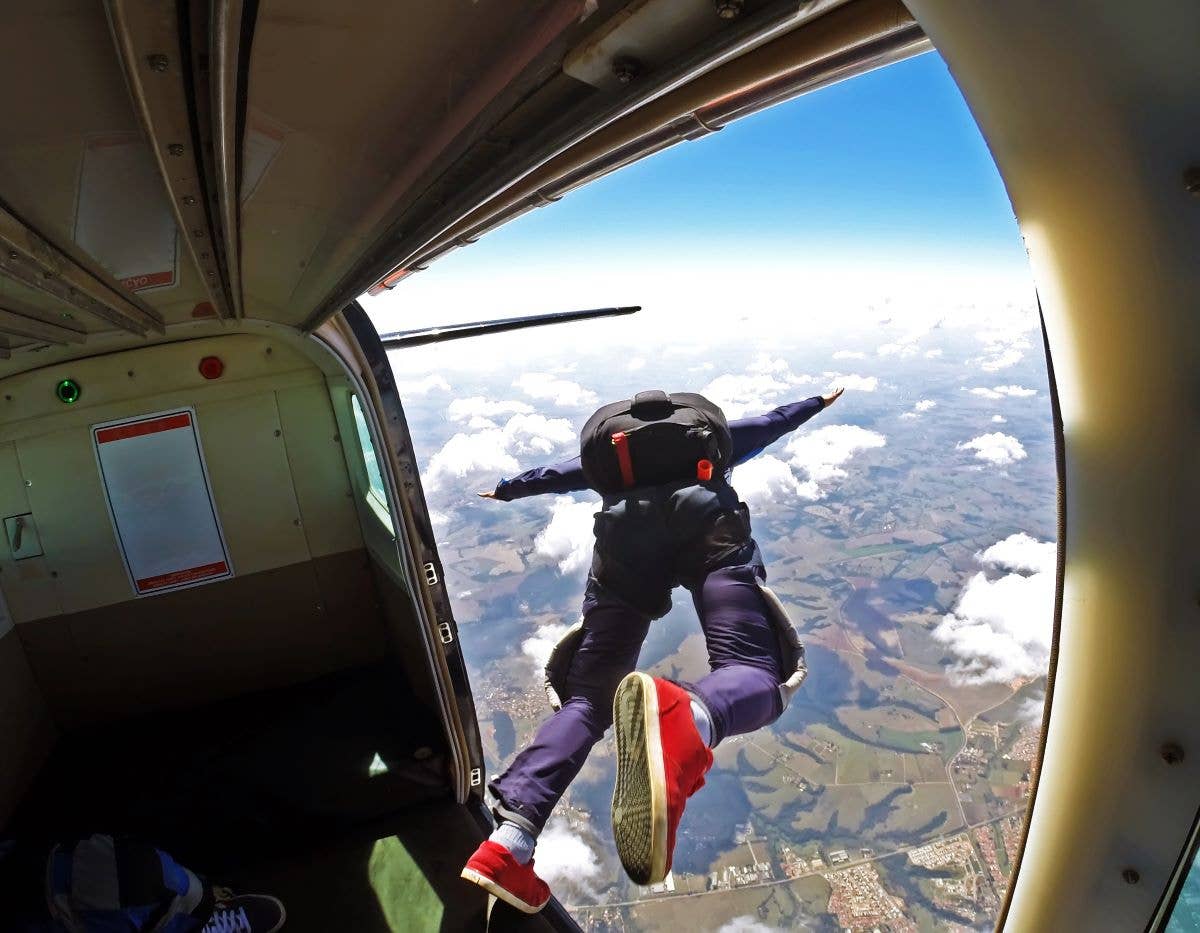
The United States Parachute Association (USPA) is fighting proposed legislation that would require additional aircraft inspections and training for jump-plane pilots. [Credit: Shutterstock]
There is sometimes a fine line between increasing government oversight to make a business safer and making it economically infeasible to stay in business. The United States Parachute Association (USPA) is keenly aware of this, and as such it spent months crafting a safety management system (SMS) that can be applied to its industry.
The goal, according to Michael Knight, USPA director of government relations, is "to promote professionalism within the industry."
The development of the organization's SMS also comes as the group is fighting proposed legislation that would require additional aircraft inspections and training for jump-plane pilots. It's a plan that could put some small operators out of business, according to USPA.
Identifying, Mitigating Risks
Safety management systems establish an organizational culture that ensures safety is put first. When activated, they empower employees to speak up when they encounter a potential safety concern with emphasis on identifying and mitigating risks.
"We are developing SMS operations within the industry internally using the FAA's template," Knight said. "We have formatted it for parachute operations and submitted it to the FAA. We are waiting for an initial review."
Knight noted that parachute organizations in other countries have operated with SMS for a while. "The Australian groups have used SMS for 10 years, and the British groups have used SMS for many years. We worked closely with those organizations."
Knight added that the USPA’s SMS was developed by its board members who are industry stakeholders. "It is a collaborative effort to make sure the SMS is not only tailored to parachute operations but also to make sure it meets the requirements of the FAA."
According to Knight, once the SMS is approved by the FAA, it will be shared with the skydiving community before adoption. "Voluntarily at first," he said, adding that the USPA doesn’t have a timeline on when the FAA approval will be forthcoming.
In the meantime, the USPA is asking the aviation community to reach out to its elected officials to protest the Air Tour and Sport Parachuting Safety Improvement Act of 2023, sponsored by Hawaii Senator Brian Schatz, that is moving through Congress as part of the FAA Reauthorization bill. The bill was inspired by the 2019 crash of a Beech King Air at Dillingham Airfield (PHDH) in Hawaii that killed all 11 people on board.
The bill would require additional aircraft inspections beyond what is currently required under FAA regulations and mandate additional training for jump-plane pilots. Critics of the bill maintain it will increase the cost of operating skydiving businesses and may force smaller ones to close for lack of resources to meet additional regulatory requirements.
Accident Details
The National Transportation Safety Board conducted an extensive investigation and determined several probable causes of the accident at Dillingham, including the aircraft being loaded in such a fashion that the center of gravity was near its aft limit and the pilot initiating what was described by witnesses as “an aggressive takeoff” that resulted in a stall and spin at low altitude from which there was no recovery.
The USPA response to the bill includes a letter that states: "As the FAA has noted, the commercial pilots that fly for jump operators have already been trained and tested in performing operation- and aircraft-specific weight-and-balance calculations, preflight inspections, emergency and recovery procedures, and parachutist egress procedures for each type of aircraft flown. As with all other segments of aviation, many accidents are the result of pilot error, often due to a lack of professionalism. Professionalism cannot be regulated, but it can be instilled by increased interaction with FAA officials.”
The USPA is asking their membership to contact its elected representatives to voice objections to these sections of the bill.

Sign-up for newsletters & special offers!
Get the latest FLYING stories & special offers delivered directly to your inbox

